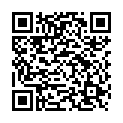|
|
|
| Module code: PIB-MADA |
|
2V+2P (4 hours per week) |
|
5 |
| Semester: 5 |
| Mandatory course: no |
Language of instruction:
German |
Assessment:
Exercises, project and presentation
[updated 19.02.2018]
|
KI599 (P221-0086) Computer Science and Communication Systems, Bachelor, ASPO 01.10.2014
, semester 5, optional course, technical
KIB-MADA Computer Science and Communication Systems, Bachelor, ASPO 01.10.2021
, semester 5, optional course, technical
KIB-MADA Computer Science and Communication Systems, Bachelor, ASPO 01.10.2022
, semester 5, optional course, technical
PIBWI42 (P221-0086) Applied Informatics, Bachelor, ASPO 01.10.2011
, semester 5, optional course, informatics specific
PIB-MADA Applied Informatics, Bachelor, ASPO 01.10.2022
, semester 5, optional course, informatics specific
PIB-MADA Applied Informatics, Bachelor, SO 01.10.2026
, semester 5, optional course, informatics specific
|
60 class hours (= 45 clock hours) over a 15-week period.
The total student study time is 150 hours (equivalent to 5 ECTS credits).
There are therefore 105 hours available for class preparation and follow-up work and exam preparation.
|
Recommended prerequisites (modules):
None.
|
Recommended as prerequisite for:
|
Module coordinator:
Christoph Karls, M.Sc. |
Lecturer: Christoph Karls, M.Sc.
[updated 10.11.2016]
|
Learning outcomes:
After successfully completing this module, students will be able to explain the basics of application development in the context of mobile applications and work with a corresponding development environment (e. g. Android Studio).
They will be familiar with the basic concepts of the Android operating system (e. g. activities, intents, services and threads) and can plan and implement applications independently.
Students will put the above mentioned topics to the test in exercises. This will enable them to develop an integrated solution for a given task in a final project independently and in a problem-oriented manner.
[updated 19.02.2018]
|
Module content:
- Basics
- Programming environment & special toolchain
- Activities and life cycle
- User interfaces
- Intents and broadcast receiver (communication between application components)
- Services and threads
- Persistence
- Content provider
- Sensors and actuators
- Miscellaneous
[updated 19.02.2018]
|
Teaching methods/Media:
Android smartphones and tablets, transparencies, projector, board, project and group work, lecture-relevant exercises, oral presentations by students
[updated 19.02.2018]
|
Recommended or required reading:
http://www.android.com
http://developer.android.com
MarkL.Murphy,Commonsware,TheBusyCoder_sGuide to Android Development - https://commonsware.com/Android/
[updated 19.02.2018]
|


